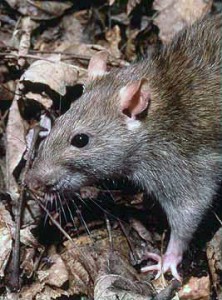A six-month old Dillsburg-area, PA baby, who was bitten by a rat that was to be fed to the family’s pet snakes in late December and died on New Year’s Day, was determined to have contracted rate-bite fever, according to Cumberland County Coroner Charley Hall Thursday.

The child was taken to the emergency room suffering from a fever and a rash on Dec. 30 and was released after being given medication. On Jan.1, however, the child, now running a high fever and lethargic, was brought back to the hospital. The baby died in the emergency room that day, the coroner said.
An autopsy on the child in early January determined the cause of death to be meningitis and myocarditis as a result of the bite.
The coroner said police and County Children and Youth Services are investigating the death. The child and the family have not been identified.
“Rat-bite fever” is a general term to describe two relatively rare bacterial infections: Streptobacillus moniliformis, also known as Haverhill fever, and Spirillum minor, also known as Sodoku.
Both bacteria are normal or commensal organisms found in rats and to a lesser extent other rodents and mammals.
These infections are found worldwide, but seen most commonly in Asia and Africa.
The bacteria are found in the oral and nasal secretions of the infected rat. It can also be found in the rat’s urine.
Transmission to people is most frequently the result of a rat bite; however, direct contact with the rats is not always necessary. People who work or live in rat-infested buildings are also at risk and it has been transmitted through contaminated water and milk.
After about a week after being exposed, there is an abrupt onset of chills, fever, headache and muscle pains.
With S. moniliformis, a rash on the extremities appears after a few days. Arthritic symptoms may also be present.
On the other hand, with S. minor, an ulcerated lesion at the bite site is typical andsymptoms of arthritis are rare.
Untreated cases can be fatal in up to 10% of cases. Endocarditis, pericarditis and abscesses of the brain are complications of untreated rat-bite fever.


2 thoughts on “Pennsylvania infant died of rat bite fever: Coroner”